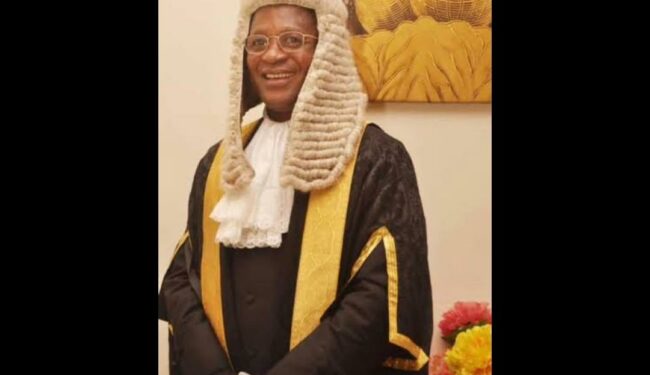Emeka Ozoani (SAN), a renowned Nigerian lawyer, stated on Tuesday night that a contender cannot be proclaimed the winner of the presidential election if they do not win the Federal Capital Territory (FCT).
“Any presidential contender who does not win the Federal Capital Territory, Abuja, cannot be declared the winner of the presidential Election in a legal or constitutional sense. The only way to reach INEC is to request a new nomination.
The Federal Republic of Nigeria’s 1999 constitution, as amended, “attests to this,” the SAN remarked, quoting Section 133(b), last paragraph.
A critical analysis of Section 133(b) of the 1999 Constitution as amended on the declaration of a winner in a presidential election said “the only interpretation to be founded on Section 133 (b) of the 1999 constitution of the Federal Republic of Nigeria, as amended is to the effect that for a candidate to be qualified to the office of the president, ‘he has not less than one-quarter of the votes cast at the election in each of at least two-thirds of all states in the Federation and the Federal Capital Territory, Abuja but where the only candidates fail to be elected in accordance with this section, then there shall be fresh nominations’.
INEC Shouldn’t Have Declared Tinubu Winner Over Peter Obi – Ozoani
“The interpretation of and is in issue. We submit that the word, ‘AND’ means ‘Conj’, ‘in addition’, ‘together with’, ‘plus’. See Webster’s Universal Dictionary and thesaurus, Bedded and Grosset, P. 31. Also, ‘AND’ means, ‘generally, a cumulative sense, requiring the fulfillment of all the conditions that it joins together and herein, it is the antithesis of ‘OR’. See Stroud’s judicial dictionary of words and phrases, Seventh edition, VOL. 1, Daniel Greenberg, London Sweet and Maxwell, 2006, P 128
“In BUHARI V INEC, (2008) 19 NWLR (PT 1120) P, 246 at 368, paras A-D, the Supreme court, In interpreting section 146 of the Electoral Act, 2006 held that the word ‘AND’ is CONJUCTIVE and not DISJUNCTIVE like ‘OR’. See also NDOMA-EGBA v CHUKWUOGOR (2004) 6 NWLR (PT 969)382.
“Further, the word ‘AND’ in SECTION 135(1) OF THE ELECTORAL ACT, 2002, the Court of Appeal, per Salami, J.C.A (as he then was) in YUSUF v OBASANJO (2005) 18 NWLR (PT. 956) 96 AT 178 held that the word ‘AND’ should be read CONJUNCTIVELY and not DISJUNCTIVELY. See also, SASEGBON’S JUDICIAL DICTIONARY OF NIGERIAN LAW. VOL. 1, P. 309. The Federal Capital Territory Abuja is one of the states of the Federation by Section 299 of the 1999 Constitution, as amended.
“Therein, it is stated,’ the provisions of this constitution shall apply to the Federal Capital Territory, Abuja as if it were one of the states of the Federation and accordingly…’ In BABA-PANYA V PRESIDENT, FEDERAL REPUBLIC of NIGERIA (2018) 15 NWLR (pt 1643) 395, the court of appeal, per Akomolafe- Wilson, J.C.A, held that ‘by virtue of Section 299 of the Constitution of the Federal Republic of Nigeria, 1999 as amended, the Federal Capital Territory, Abuja, IS A STATE.
See What Peter Okoye of PSquare Said About 2023 Election Campaign
“Also, in OKOYODE v F.C.D.A., (2005) VOL. 27 WRN, P. 97, the Court of Appeal, per ALAGOA, J.C.A at p. 149, lines 40- 45, held inter alia, ‘Section 299 of the constitution of the Federal Republic of Nigeria 1999 as amended, has clear and unambiguous provisions to the effect that the Federal Capital Territory, ABUJA IS IN LAW A STATE,” Ozoani added.
Follow us on Facebook

